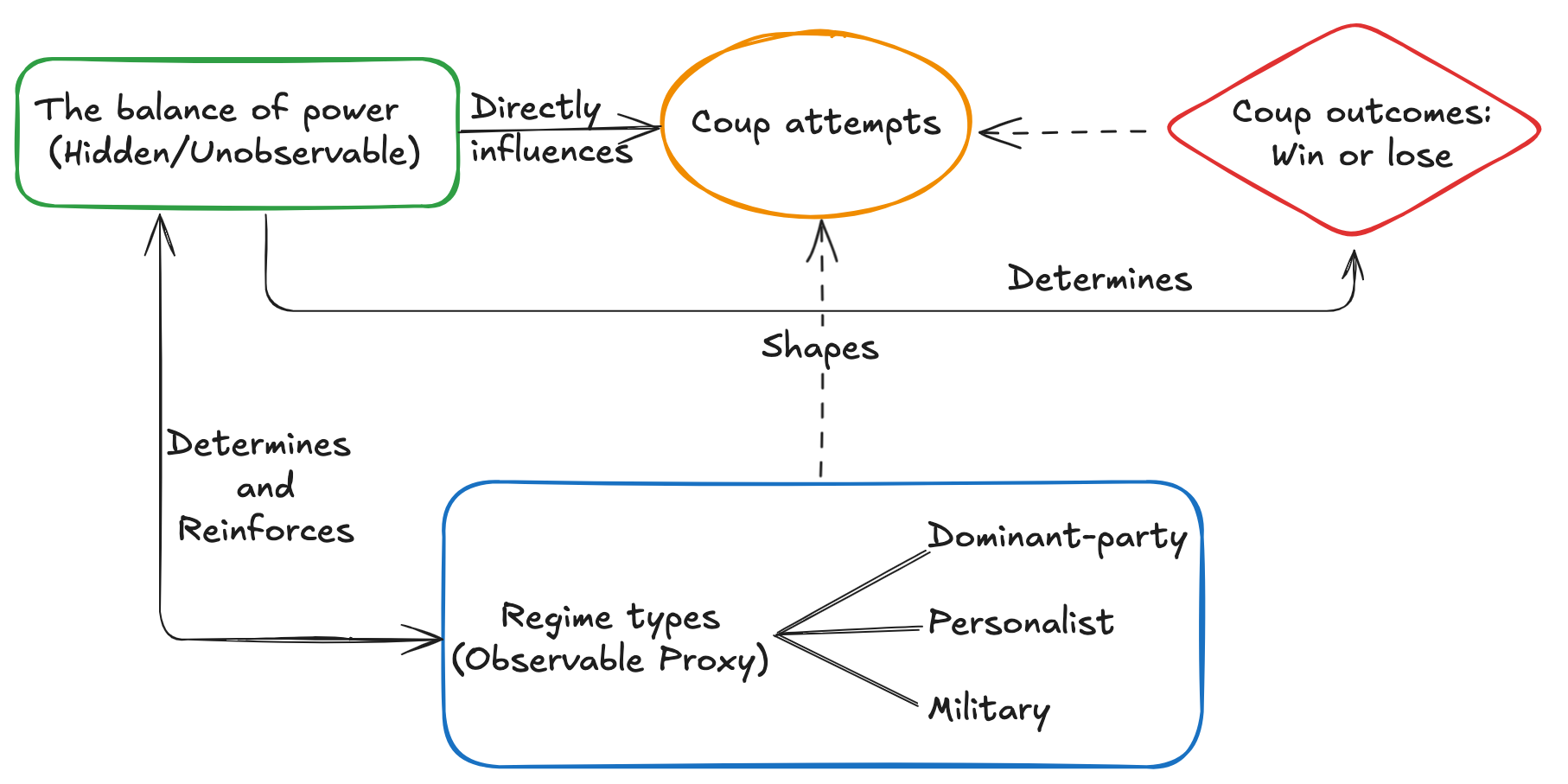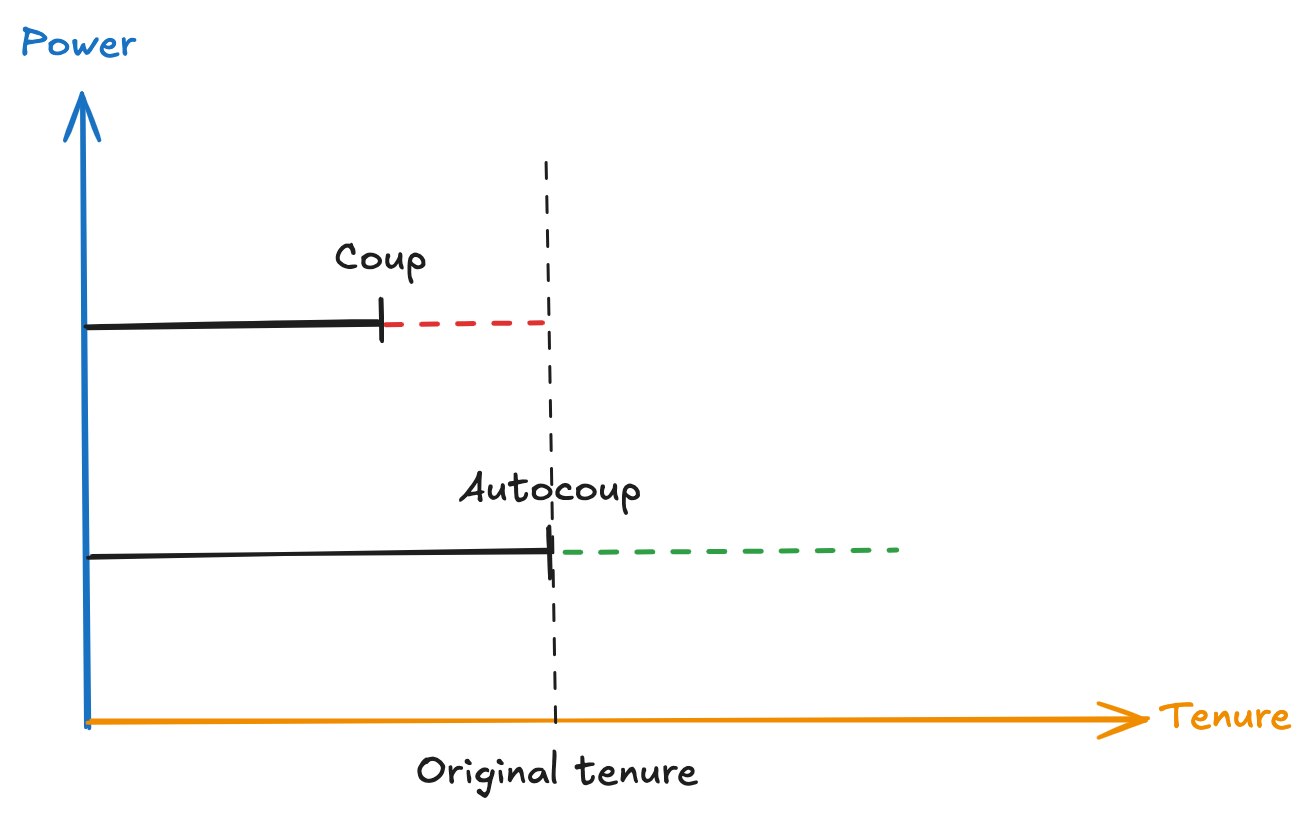1. Due to the imbalanced power dynamics among military officers internally, as well as their conflicts with civil servants externally, military regimes are the most coup-prone regime type, exhibiting a 277.7% higher likelihood of experiencing coups compared to dominant-party regimes.
2. Similarly, due to the concentration of power in the hands of dictators, personalist regimes are significantly more likely to carry out autocoups compared to other types of regimes.
3. Challenges associated with illegitimacy, uncertainty, and instability tend to favour autocoup leaders, enabling them to enjoy significantly longer post-event tenures. In contrast, coup-installed leaders are 2.23 times more likely to be ousted.




